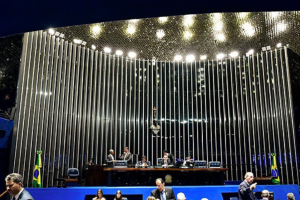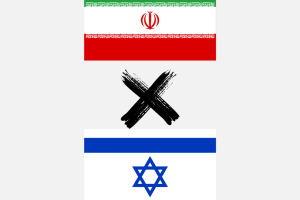The Brazilian Health Regulatory Agency (Anvisa) announced on Wednesday (24) a resolution that bans the manufacturing, importation, commercialization, distribution, storage, transportation, and advertising of electronic smoking devices, commonly known as electronic cigarettes.
The resolution defines electronic smoking devices as “smoking products whose emission generation is assisted by an electrical system, battery, or another non-combustible source, mimicking the act of smoking.” The following are included in this category and thus prohibited:
– Disposable or reusable products;
– Products utilizing a solid, liquid, or other matrix depending on their construction and design;
– Products comprised of a unit that heats one or more matrices: liquid (with or without nicotine); solid (usually made from extract or leaves of tobacco—crushed, shredded, ground, chopped, or whole, or other plants); composed of synthetic substances that mimic tobacco components, from extracts of other plants; by essential oils; by vitamin complexes, or other substances;
– Products known as e-cigs, electronic nicotine delivery systems (ENDS), electronic non-nicotine delivery systems (ENNDS), e-pod, pen-drive, pod, vapes, heated tobacco product (HTP), heat not burn, and vaporizers, among others.
The resolution also prohibits the entry into the country of products brought by travelers through any form of importation, including accompanied baggage or hand luggage. “Failure to comply with this resolution constitutes a sanitary infraction,” Anvisa highlighted in the text.
Understanding the Context
Last Friday (19), the collegial board of Anvisa decided to maintain the ban on electronic cigarettes in Brazil. All five directors of the agency voted to continue the ban, in place since 2009, within the country. With this decision, any form of importation of these products is prohibited, including for personal use.
In his vote, Anvisa’s Director-President and rapporteur of the matter, Antonio Barra Torres, read for about two hours the opinions of 32 Brazilian scientific associations, as well as positions from the Ministries of Health, Justice and Public Security, and Finance. He also cited a public consultation conducted between December 2023 and February of this year on the topic.
In his report, Barra Torres relied on documents from the World Health Organization (WHO) and the European Union and on decisions by the Belgian government to ban the sale of all heated tobacco products with additives that alter the smell and taste of the product. He mentioned that, this week, the United Kingdom approved a bill that prohibits those born after January 1, 2009, thus under the age of 15, from purchasing cigarettes.
Socorro Gross, representative of the Pan American Health Organization (PAHO) in Brazil, pointed out that the country is internationally recognized for its internal tobacco control policy since the last century. “This measure protects, saves lives, effectively promotes public health, and is a crucial step towards a healthier and safer environment for all people.”
Arguments were also presented requesting the regulation of consumption and sale of the products by Anvisa, pointing out harm reduction for regular cigarette smokers and combating the illegal sale of unregulated products of unknown origin.
Lauro Anhezini Júnior, director of British American Tobacco in Brazil, stated that consumers are being treated as second-class citizens. The industry representative asked for decisions to be based on science. “It is not just industry science, it is the independent science of this country that also proves these are risk-reduction products. Electronic cigarettes are less risky to health than continuing to smoke regular cigarettes.”
Fabio Sabba, Director of Communications at multinational Philip Morris Brasil, argued that the current prohibition has proven ineffective against the growing illicit and smuggling market in the country. “By deciding to maintain the mere prohibition at a time when the market is growing uncontrollably, Anvisa fails to fulfill its role of ensuring that these 4 million Brazilians or more consume a product framed in defined regulatory criteria. It is ignoring that the market itself is demanding quality rules of consumption.”
The Devices
Electronic smoking devices are also known as electronic cigarettes, vapes, pods, e-cigarettes, e-ciggies, e-pipes, e-cigars, and heat-not-burn (heated tobacco). Although their commercialization is banned in Brazil, they can be found in various commercial establishments, and consumption, particularly among young people, has increased.
Since their creation in 2003, these devices have undergone various changes: disposable or single-use products; rechargeable products with liquid refills (containing mostly propylene glycol, glycerin, nicotine, and flavorings), in open or closed systems; heated tobacco products, which have an electronic device where a tobacco refill is attached; pod systems, which contain nicotine salts and other substances diluted in liquid and resemble pen drives, among others.
Most electronic cigarettes use a rechargeable battery with refills. These devices heat a liquid to create aerosols (commonly called vapor), and the user inhales the vapor.
The liquids (e-liquids or juice) may contain nicotine in various concentrations, in addition to additives, flavors, and toxic chemicals—mostly propylene glycol, glycerin, nicotine, and flavorings.
More information about electronic cigarettes is available on Anvisa’s website.
Source: Agência Brasil




Comentar